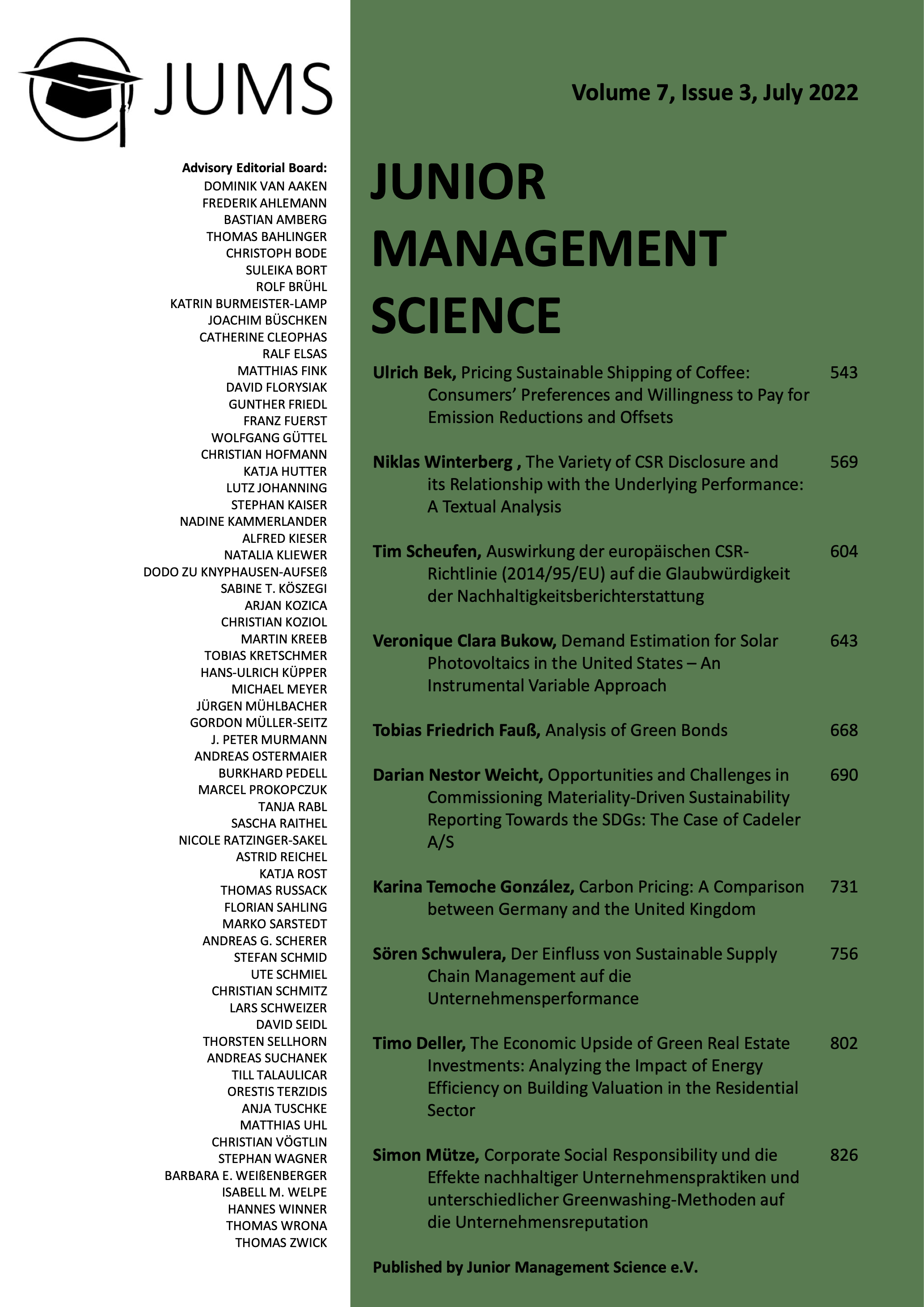Abstract
As awareness of sustainable consumption continues to grow, corporate social responsibility (CSR) is becoming increasingly relevant. However, when it comes to communicating corporate sustainability (green marketing), false or vague claims, so-called greenwashing, have now reached epidemic dimensions. For this reason, many consumers have built up a fundamental skepticism towards this type of communication. The purpose of this study is to help marketers establish and communicate effective as well as sincere corporate practices to address the challenges posed by greenwashing.
Therefore, this study uses a field experiment to investigate how often greenwashing is recognized by consumers in the first place, what companies need to consider for successful CSR and, in particular, what effects different CSR initiatives, greenwashing methods and greenwashing scandals have on corporate reputation.
One of the key findings is that greenwashing is strongly condemned and has a strong negative impact on corporate reputation, but due to high consumer skepticism and confusion, as well as low environmental knowledge, it is hardly distinguished from actual CSR measures. Proposed solutions include awareness campaigns for a better understanding of environmental claims in advertising, and government reform and monitoring of eco-labels.
Keywords: CSR; Greenwashing; Unternehmensreputation; Unternehmerische Nachhaltigkeit; Umweltsiegel.

This work is licensed under a Creative Commons Attribution 4.0 International License.

